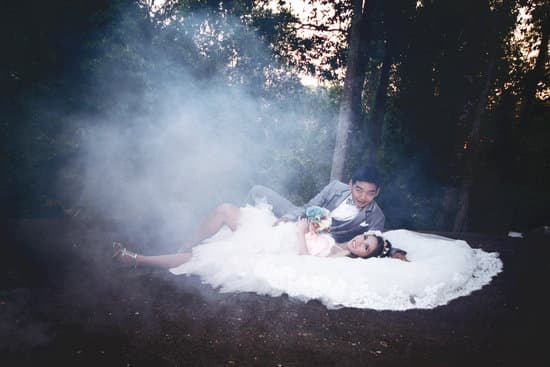Do you wear a veil for a second wedding? The tradition of wearing veils in weddings has been a symbol of purity, modesty, and beauty for centuries. From ancient times to modern-day celebrations, brides have adorned themselves with veils as they walk down the aisle. However, as the customs and etiquette surrounding weddings continue to evolve, many second-time brides may wonder if wearing a veil is still appropriate for their special day.
In this article, we will delve into the history of wearing veils in weddings, tracing its origins and significance through time. We will explore the etiquette and traditions surrounding second weddings, shedding light on whether wearing a veil is considered appropriate or not. Additionally, we will weigh the pros and cons of donning a veil for a second wedding, providing insights for brides navigating this decision.
As trends in bridal fashion continue to evolve, we will also discuss alternative options to veils for second weddings, highlighting trendy choices for the modern bride. Whether you choose to stick with tradition or embrace a contemporary twist, the ultimate goal is to select the perfect accessory that complements your personal style and enhances your special day.
The History of Wearing Veils in Weddings
Ancient Origins of Veil-Wearing
The tradition of wearing veils in weddings dates back to ancient times, with roots in various cultures and religions. In ancient Rome, brides wore veils as a symbol of modesty and purity. Likewise, in ancient Greece, the veil was believed to protect the bride from evil spirits. In some cultures, veils were also symbols of wealth and social status.
In medieval times, veils continued to be an essential part of bridal attire. Brides would often wear intricate lace veils that covered their faces until the end of the ceremony when the groom lifted the veil to reveal his new wife.
Evolution of Veil-Wearing Tradition
As weddings have evolved over time, so too has the tradition of wearing veils. In modern-day Western weddings, veils are still a popular choice for brides, but their significance has shifted. While some brides may choose to wear a veil as a nod to tradition or simply as a fashion statement, others opt for alternative headpieces or accessories.
Despite the changing styles and trends in bridal attire, many brides still view wearing a veil as a romantic and timeless symbol of their special day. The decision to wear a veil ultimately comes down to personal preference and individual style.
Veil-Wearing in Second Weddings
When it comes to second weddings, the question remains: do you wear a veil? There are no hard and fast rules when it comes to second wedding attire etiquette. Some brides may choose to forgo the veil altogether in favor of a different headpiece or hairstyle. Others may decide to embrace tradition and wear a veil regardless of whether it is their first or second wedding.
Ultimately, the decision whether or not to wear a veil for a second wedding is entirely up to the bride. It’s important for each bride to consider what feels right for her and aligns with her vision for her special day.
Etiquette and Traditions Surrounding Second Weddings
When it comes to second weddings, there is often a different set of etiquette and traditions that couples may choose to follow. While some may opt for a more low-key and intimate celebration, others still prefer to honor certain customs. One question that often arises is whether or not to wear a veil for a second wedding.
In the past, veils were traditionally worn by brides to symbolize purity and modesty. However, in modern times, the significance of wearing a veil has evolved, and many second-time brides now have the freedom to choose whether or not to incorporate this accessory into their wedding day look. It ultimately boils down to personal preference and what makes the bride feel most comfortable and beautiful on her special day.
Some pros of wearing a veil for a second wedding include adding an element of elegance and tradition to the overall bridal ensemble. It can also make the bride feel more connected to the bridal vision she has always dreamed of, regardless of any past nuptials.
On the other hand, some cons may include feeling like it carries outdated connotations or simply not aligning with the overall theme or style of the wedding. Ultimately, the decision should be based on what feels right for the individual bride.
| Pros | Cons |
|---|---|
| Adding elegance and tradition | Feeling like it carries outdated connotations |
| Making bride feel connected to bridal vision | Not aligning with overall theme or style |
Do You Wear a Veil for a Second Wedding
When it comes to second weddings, many brides-to-be may wonder whether or not wearing a veil is appropriate. Traditionally, veils have been seen as a symbol of purity and modesty in weddings, but times have changed and so have wedding customs. So, do you wear a veil for a second wedding? Let’s explore the pros and cons of this decision.
Pros of Wearing a Veil
For some brides getting married for the second time, wearing a veil can still hold sentimental value. It can add an element of tradition and romance to the wedding attire, making the bride feel special on her big day. Moreover, a veil can make a bride feel like she is truly embodying the bridal look, even if it’s not her first time walking down the aisle.
Cons of Wearing a Veil
On the flip side, some brides may feel that wearing a veil for a second wedding is outdated and unnecessary. They may not resonate with the symbolism traditionally associated with veils or simply prefer a more modern and unconventional look for their wedding day. Additionally, some might worry about potential judgment from family members or guests who could view wearing a veil as inappropriate for a second marriage.
It ultimately comes down to personal preference and what makes the bride feel most comfortable and beautiful on her special day. If wearing a veil holds significance for you or aligns with your vision of your dream wedding look, then go ahead and rock that veil with confidence. Do what feels right for you and embrace whatever choice you make with pride.
Alternatives to Veils for Second Weddings
When it comes to planning a second wedding, brides often wonder whether they should wear a veil or opt for a different accessory. While some may choose to follow traditional etiquette, others may prefer to explore trendy alternatives for their special day.
There are pros and cons to consider when deciding whether to wear a veil for a second wedding, making it essential for brides to find the option that aligns best with their personal style and the overall theme of the event.
One of the main reasons some brides opt not to wear a veil for their second wedding is that they may view veils as more symbolic of first marriages or younger brides. However, it’s important to remember that traditions are changing, and what matters most is how comfortable and confident you feel on your big day. Many modern brides are embracing new trends and choosing unique accessories that reflect their personalities and individuality.
For those who decide against wearing a traditional veil, there is an array of trendy alternatives to consider. Some popular options include statement hairpieces, elegant headbands, chic birdcage veils, floral crowns, or even fresh flowers woven into an updo.
These stylish choices can add a touch of modern flair to your bridal look while still maintaining a sense of sophistication and romance. Ultimately, the decision of whether or not to wear a veil for a second wedding comes down to personal preference and what makes you feel most beautiful and authentic on your special day.
| Pros | Cons |
|---|---|
| Reflects tradition | Symbolism associated with first marriages |
| Adds elegance and sophistication | May not suit modern bride’s style |
| Sense of romance | Comfort level with wearing veils |
How to Choose the Perfect Veil for Your Second Wedding
When it comes to choosing the perfect veil for your second wedding, there are some important considerations to keep in mind. One of the first things to think about is the style of your dress. If you have opted for a more modern or non-traditional gown, you may want to choose a veil that complements its design without overpowering it. Consider opting for a simple and elegant veil that adds a touch of romance without being too elaborate.
Another factor to consider when selecting a veil for your second wedding is the length. Veils come in various lengths, from short blusher veils that barely cover the face to dramatic cathedral-length veils that trail behind the bride. For a second wedding, many brides opt for a shorter veil that is less traditional and more contemporary. A fingertip or elbow-length veil can be a stylish choice that adds an air of sophistication without feeling overly formal.
Lastly, take into account your personal style and comfort level when choosing a veil for your second wedding. If you feel uncomfortable wearing a traditional veil, don’t feel pressured to do so simply because it is expected.
There are plenty of alternatives available, from chic hair accessories to statement headpieces, that can give you a bridal look without wearing a traditional veil. Ultimately, the most important thing is to choose a bridal accessory that makes you feel beautiful and confident on your special day.
Real-Life Stories
When it comes to second weddings, the decision of whether or not to wear a veil can be a personal and meaningful one for brides. Some may feel that wearing a veil adds an extra touch of elegance and tradition to their special day, while others may choose to forego this accessory in favor of a different style.
To give you some insight into the experiences of real brides who chose to wear veils for their second weddings, here are some stories:
1. Grace’s Story: Grace had always envisioned herself walking down the aisle with a veil trailing behind her. When she decided to have a second wedding, she debated whether or not she should stick with her original vision.
Ultimately, she decided to go for it and wore a stunning cathedral-length veil that made her feel like a true bride. “I’m so glad I followed my heart and wore the veil. It made me feel beautiful and connected to tradition,” Grace shared.
2. Eva’s Experience: On the other hand, Eva opted for a more modern approach for her second wedding by choosing not to wear a veil at all. Instead, she accessorized with a statement hair piece that reflected her personal style. “I didn’t want to be constrained by old traditions for my second wedding. Not wearing a veil allowed me to express myself in a way that felt authentic to who I am,” Eva explained.
3. Sophie’s Journey: Sophie found herself torn between wanting to honor tradition and wanting to break free from it for her second wedding. In the end, she compromised by wearing a shorter, shoulder-length veil that struck the perfect balance between classic and contemporary styles. “My compromise veil was the best of both worlds – it added a touch of romance without feeling too traditional,” Sophie stated.
These real-life stories showcase the variety of experiences that brides can have when deciding whether or not to wear a veil for their second weddings. It truly is a personal choice that each bride should make based on what feels right for them and their special day.
Conclusion
In conclusion, the decision of whether to wear a veil for a second wedding ultimately comes down to personal preference. While some may choose to embrace tradition and don a veil as a symbol of purity and innocence, others may opt for more modern alternatives that better reflect their individual style and personality.
It is important to consider the significance of wearing a veil in weddings throughout history, but also to remember that etiquette and traditions surrounding second weddings have evolved over time.
When deciding whether or not to wear a veil for your second wedding, it is essential to weigh the pros and cons. Some may appreciate the symbolism and beauty of a veil, while others may find it outdated or unnecessary. Fortunately, modern brides have a plethora of trendy options available when it comes to bridal accessories, allowing them to express themselves in unique ways on their special day.
Ultimately, the most important thing is to make the decision that feels right for you and your special day. Whether you choose to wear a veil, opt for a chic headpiece, or forego traditional bridal accessories altogether, what matters most is that you feel confident and comfortable as you walk down the aisle.
Your wedding day should be a reflection of your own personal style and love story – so trust your instincts and choose the option that brings you joy on this momentous occasion.
Frequently Asked Questions
What Should a Bride Wear for a Second Marriage?
A bride should feel free to wear whatever makes her feel beautiful and comfortable for a second marriage. Some opt for non-traditional colors like blush or champagne, while others still prefer a classic white gown. Ultimately, the choice of attire should reflect the bride’s personal style and preference.
Can a Bride Wear a Veil for Second Wedding?
Yes, a bride can absolutely wear a veil for a second wedding if she chooses to do so. Even though veils are traditionally associated with first-time brides, there are no strict rules regarding this. It ultimately comes down to the bride’s individual taste and how she envisions herself on her special day.
What Is Proper Etiquette for 2nd Marriage?
Proper etiquette for a second marriage revolves around being considerate of everyone involved and respectful of any past relationships. It’s important to inform immediate family members about the upcoming nuptials before announcing it publicly.
Additionally, when planning the ceremony and reception, it’s advisable to keep things low-key and avoid extravagant celebrations that might be considered inappropriate for a second marriage. Lastly, acknowledging any children from previous marriages and involving them in the process is also crucial in maintaining good etiquette for a second marriage.

I have been involved in marriages for over 20 years helping couples and singles understand more about them.





